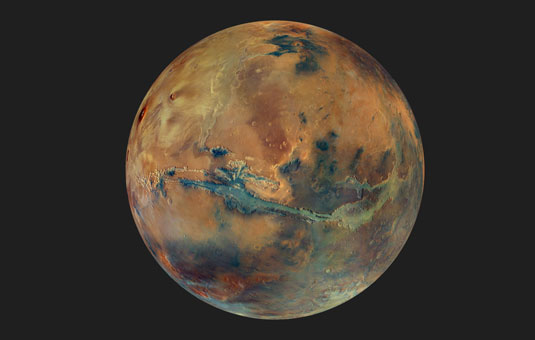 France’s Atomic Energy Commission (CEA – Commissariat à l'énergie Atomique et aux énergies Alternatives) is to conduct two feasibility studies on nuclear propulsion in space for the European Space Agency (ESA). CEA says these “could bring significant benefits, responding to Europe's concern to ensure long-duration missions in space”. CEA is therefore undertaking two studies – the Alumni project and RocketRoll. These one-year feasibility studies, will be used to develop a roadmap for the possible development of technological bricks and a demonstrator by 2035.
France’s Atomic Energy Commission (CEA – Commissariat à l'énergie Atomique et aux énergies Alternatives) is to conduct two feasibility studies on nuclear propulsion in space for the European Space Agency (ESA). CEA says these “could bring significant benefits, responding to Europe's concern to ensure long-duration missions in space”. CEA is therefore undertaking two studies – the Alumni project and RocketRoll. These one-year feasibility studies, will be used to develop a roadmap for the possible development of technological bricks and a demonstrator by 2035.
The Alumni project, led by the CEA with the support of Ariane Group and Framatome, concerns a nuclear-thermal propulsion engine. It involves heating liquid hydrogen by passing it through a nuclear reactor core to transform it into gas at a high temperature, before ejecting it to generate thrust. This would have two to three times greater efficiency than a conventional chemical engine.
This would thus make it possible to cut the time required for a journey to Mars and reduced exposure to intense space radiation. In the event of inhabited exploration of Mars, it would also facilitate delivery of the large equipment needed for survival.
The RocketRoll project aims to study the feasibility of an electric nuclear propulsion system in which electricity is produced by a reactor to power electric ion thrusters. This involves ionising a gas and accelerating the ions produced, which are then ejected to generate thrust. This study will be carried by a consortium including CEA.
Compared with conventional ion propulsion systems, where electricity is produced by solar panels, the engines would offer higher thrust, independent of exposure to sunlight. The use of this propulsion is envisaged, in particular beyond Mars, in the external solar system.
Xavier Averty, programme manager at the CEA says, in addition to its work on technological advances for space (energy, sensors, chips, communication systems), CEA has been involved in studies on space nuclear power since the 1980s. “We have recognised know-how in the sizing and design of nuclear and fuel reactors, radiation protection and safety studies, and are already involved in radioisotope generator projects to produce heat and electricity to power space probes and rovers”.
Image: A simulated view of Mars (courtesy of CEA)






